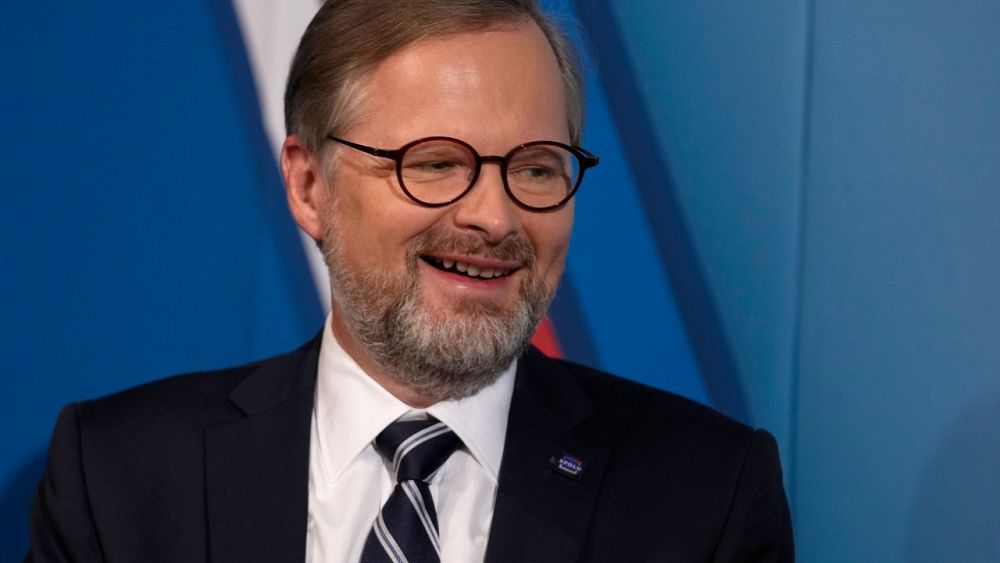
The president of the Czech Republic has formally asked Petr Fiala, leader of a centre-right coalition that came top in last month’s election, to form a new government.
It comes a day after the three-party alliance signed a power-sharing agreement with a liberal coalition which came third in the vote on October 8 and 9.
The development confirms the relegation of the populist Prime Minister Andrej Babiš and his centrist ANO (YES) movement to the opposition.
The five parties in the potential governing coalition are closer to the European Union than Babiš, a eurosceptic, although Fiala is seen as more pro-EU than others in his party.
As part of their deal, the parties agreed to form an 18-member government. The new partnership will hold 108 seats in the 200-seat lower house of parliament.
“On the basis of the results of the parliamentary elections, I authorise you to hold negotiations with the representatives of the political parties represented in the Chamber of Deputies with the aim of establishing a new government,” a spokesperson for President Milos Zeman, who remains in hospital with liver problems, said in a statement.
“I expect you to keep me informed of the outcome of your negotiations so that I can decide on my next constitutional process.”
Zeman had previously said that he wanted to reappoint his ally Babiš, but the offer was refused.
Petr Fiala’s three-party coalition finished first in the October election with 27.8% of the vote, just ahead of Babiš on 27.1%. Known as Together, it is made up of the Civic Democratic Party, Christian Democrats and the TOP 09 party.
It has teamed up with a centre-left, liberal coalition made of the Pirate Party and STAN, a group of mayors and independent candidates, which came third with 15.6% of votes.
Monday’s power-sharing accord set out to define priorities and allocate ministries within the future government. Petr Fiala said on Twitter on Tuesday that negotiations would continue over the next few days within the coalition to determine the administration’s line-up.
The new government will be tasked with tackling a surge of coronavirus infections and high inflation driven by soaring energy prices.